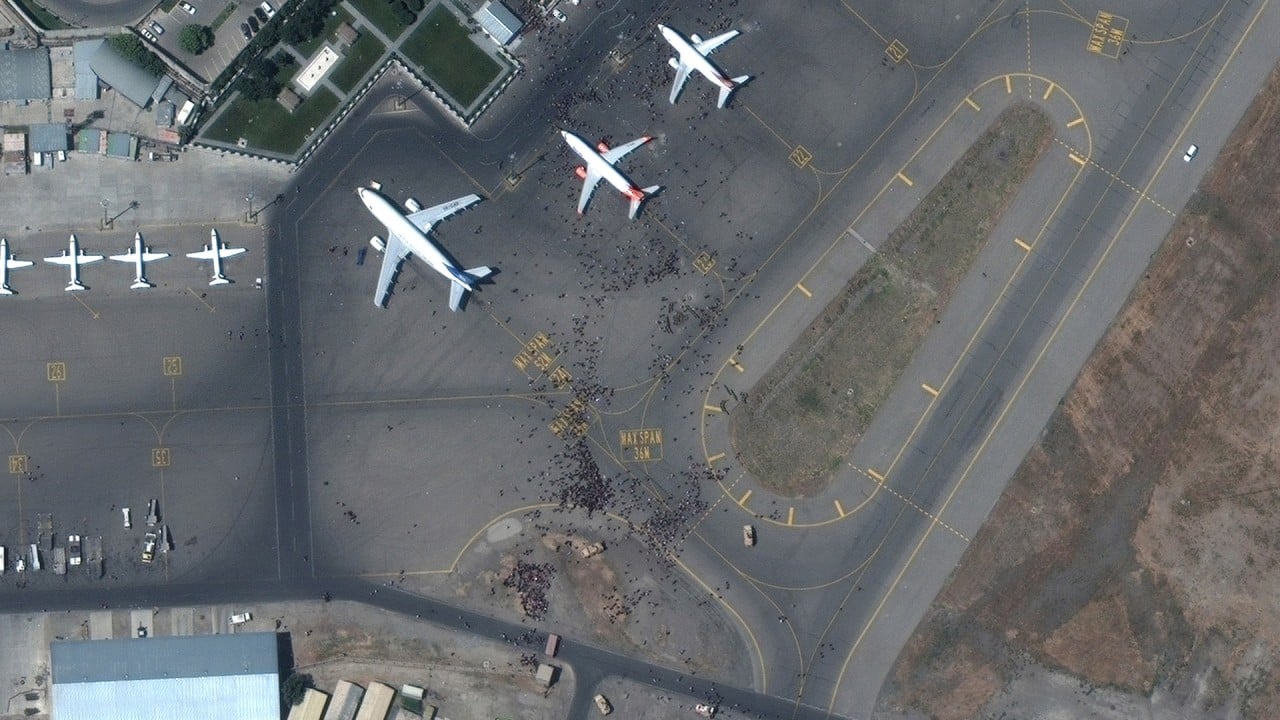
Why Taiwan won’t be the next Afghanistan, despite what US pundits might say
- The tragedy of Afghanistan has inspired all kinds of speculation about Taipei’s supposed helplessness, possible military action by Beijing and the US’ rumoured passivity
- But the US withdrawal from the ‘graveyard of empires’ does not signal its impending betrayal of Taiwan, given Taipei’s greater strategic significance
Rather than focusing on the real tragedy of the event – the legions of Afghans who would like to escape Taliban rule and cannot because of a combination of Western xenophobia and poor planning – commentary, especially in the United States, has zeroed in on what it means for “our” credibility.
This is, perhaps, compound interest from The Economist previously dubbing the Taiwan Strait “the most dangerous place on Earth” but, whatever the cause, the hot takes on possible military action by Beijing, Taipei’s supposed helplessness and the US’ rumoured passivity have flown freely and without much contemplation on whether the analogy holds.
Congressman Michael Waltz of Florida took to Twitter, for example, to declare that he would be “terrified” if he were in Taiwan, “knowing this is how the United States will react under this administration”. And Stuart Lau of Politico tweeted: “Imagine Beijing watching US military ‘commitment’ in Afghanistan while contemplating its next move on Taiwan.”
China’s own Global Times has weighed in on the matter, saying US “treachery” in Afghanistan should be seen as a warning for Taiwan’s “secessionists” (that is, its government and the entire Democratic Progressive Party).
“...the failure of the US in Afghanistan should serve as a warning to the secessionists in the island, who have to understand that they cannot count on Washington, as Afghanistan is not the first place where the US abandoned its allies, nor will it be the last”, the newspaper said on August 16, placing Afghanistan on a timeline of US failures that starts in Saigon and ends in Taipei.
No doubt some in the US will take Global Times’ statements as evidence that Beijing is indeed eyeing the Taiwan Strait in the near term.
China needs better friends than Taliban to make most of its rise
However, there is a reason Beijing elected to send its message through one of its state media outlets (and one with a particularly hawkish reputation) rather than, for instance, a military build-up or fresh provocation.
Lithuania’s Taiwan decision is aimed at upending China-EU relations
That there would be no post-Taliban Afghanistan in which liberal democracy would flourish has been common knowledge for some time; it was only a question of when the US would be willing to face the consequences of withdrawal.
The US’ reputation, however tarnished by its botched withdrawal, will recover; a passive response to any military action to retake Taiwan would be a death knell for the US’ reputation abroad, however.
None of which is to say that the US will abandon its policy of strategic ambiguity towards Taiwan, or start encouraging Taiwanese declarations of independence any time soon. Beijing’s red lines on the subject are well known, and pushing it into a situation where it feels the need to exercise its territorial claims serves neither US nor Taiwanese interests.
Instead, the Biden administration should, in the near term, signal its continued interest in cross-strait affairs without making such a promise explicit. Indeed, one expects that it will do so shortly.
Rob York is programme director for regional affairs at the Pacific Forum



